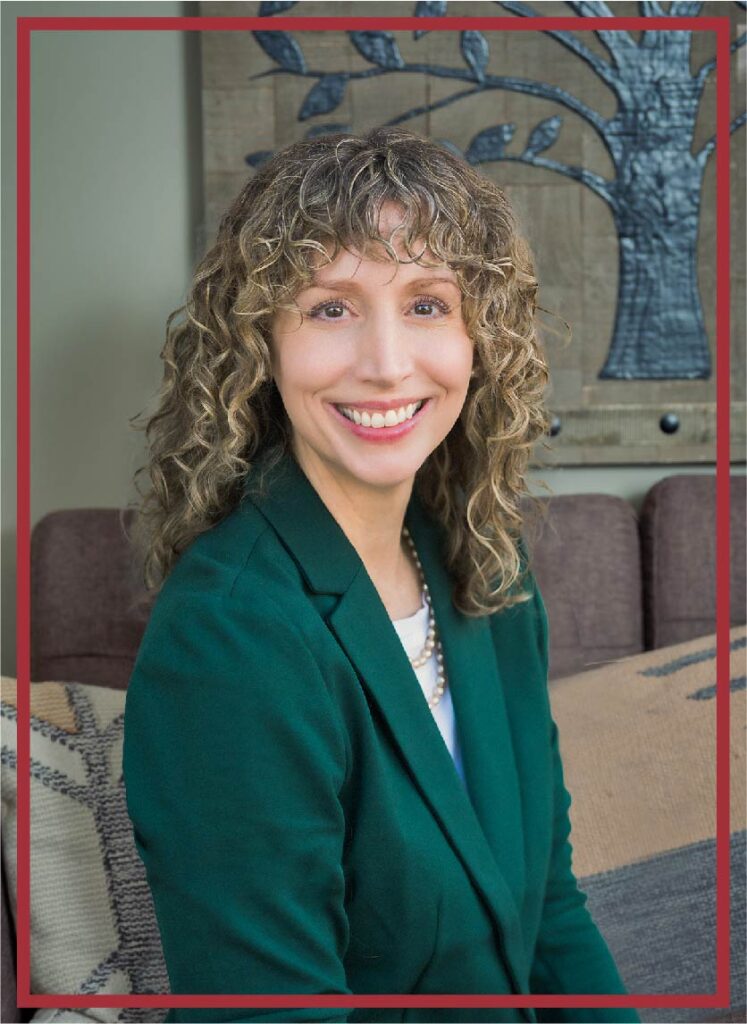About Michelle
Adult Therapist
 Existential Questions
Existential Questions
My interest in psychology and counseling began in high school when I started reading the existential and humanistic psychology books my mom brought home from the university where she worked. These texts tackled whopping themes like existence, meaningfulness, and the universals and varieties of human experience. As a curious kid turned broody teenager burning with big ideas, I was enthralled. I took a psychology elective my senior year and then, after graduating, went off to college as a psychology major.
Unfortunately, other than one elective in humanistic psychology, my undergraduate psychology courses were not asking the kinds of deep, existential questions I had expected, so I changed majors and moved to the only department on campus that was asking the big and eternal questions: philosophy. I eventually found my way back to psychology in graduate school, earning a master’s and then a doctorate in psychology from universities that offered a more holistic and philosophically-inclined approach to psychology.
Answering the Call
I entered a master’s program to return to my passion of studying psychology, consciousness, and human experience and to apply that knowledge to help others by becoming a therapist. My idea of some of what a therapist does—reveres and fosters relationships, exhibits authenticity and compassion, delves below the surface of social scripts and public niceties, explores life’s biggest questions, and sees the extraordinariness of ordinary people—matched my proclivities and general experience of everyday life. In other words, I felt called to the profession by my talents and my interests.
My first year of graduate school confirmed I was in the right place, and I discovered two more ways of applying my passion for psychology: as a teacher and as a researcher. I decided to continue my graduate education beyond the master’s level because, though I was still sure I wanted to be a therapist, I did not feel ready yet. I decided I needed more education, more involvement in the field, more life experience first. I went on to get a doctorate in psychology, deepening my interest in teaching psychology, doing qualitative research, and practicing psychotherapy. My commitment to becoming a therapist was further cemented by my positive experience of personal therapy during my husband’s and my struggles with infertility and loss while I was working on my PhD.
My Approach to Therapy
I believe in the resilience of human beings as well as individuals’ capacity for self-knowledge and responsible self-direction in the context of sincere and supportive connections, which I strive to facilitate as a therapist by approaching each client with empathy, attentiveness, genuineness, and acceptance. The healing and transformational power of the alliance between client and therapist is the cornerstone of therapy, which I consider a collaborative process. The client and I work together to deepen their self-awareness and self-acceptance so that they can live more fully and consciously, even in the face of life’s inherent challenges, paradoxes, and uncertainties.
From the foundation of a trusting, therapeutic relationship, I help people examine their assumptions, values, aspirations, and ways of being in the world and relating to others; identify and shift unhelpful patterns and ways of coping; and be true to their innermost possibilities within the particular and universal constraints of the human condition in order for them to move in the direction of living a more deliberate, engaged, and meaningful life—whatever that may look like for each client.
I offer depth-oriented, client-centered psychotherapy, integrating relational and psychodynamic perspectives within an existential-humanistic framework, where treatment is tailored according to each client’s needs, characteristics, and desired outcomes. I embrace the complexity and ambiguity of human existence, and though I consider clients and myself to be “in it together”—alongside the rest of humanity—I appreciate and respect the singularity of each person’s experience, and am honored to join them on their individual, uniquely courageous journeys.
On Finding the Right Therapist
Research suggests that the single greatest predictor of a successful outcome for therapy is the quality of the alliance between client and therapist. Therefore, the importance of finding a therapist you can connect with is paramount, and I encourage you to try as many therapists as needed until you find one you feel comfortable with, whether or not it is me.
More About Me
In addition to practicing psychotherapy, I enjoy teaching and learning about psychology and human-animal studies, doing qualitative research, reading postmodern philosophy and animal ethics, hiking, working out, cooking, traveling, watching all kinds of TV shows and movies, and spending time with friends and family, including my husband, twins, and our rescue dog, Roxy. I also recently picked up cross-stitching again, something my grandma first taught me as a kid.
Credentials
Ph.D. in Psychology, University of West Georgia
M.Psy. in Psychology, University of Dallas
B.A. in Philosophy, Southwestern University
Licensed Mental Health Counselor Associate (LMHCA) in Washington State, MC61193958
Contact us to book a counseling session in our Issaquah or Sammamish therapy office. Or, set up a FREE, 10-minute phone consultation by calling us at 425-269-3277.
